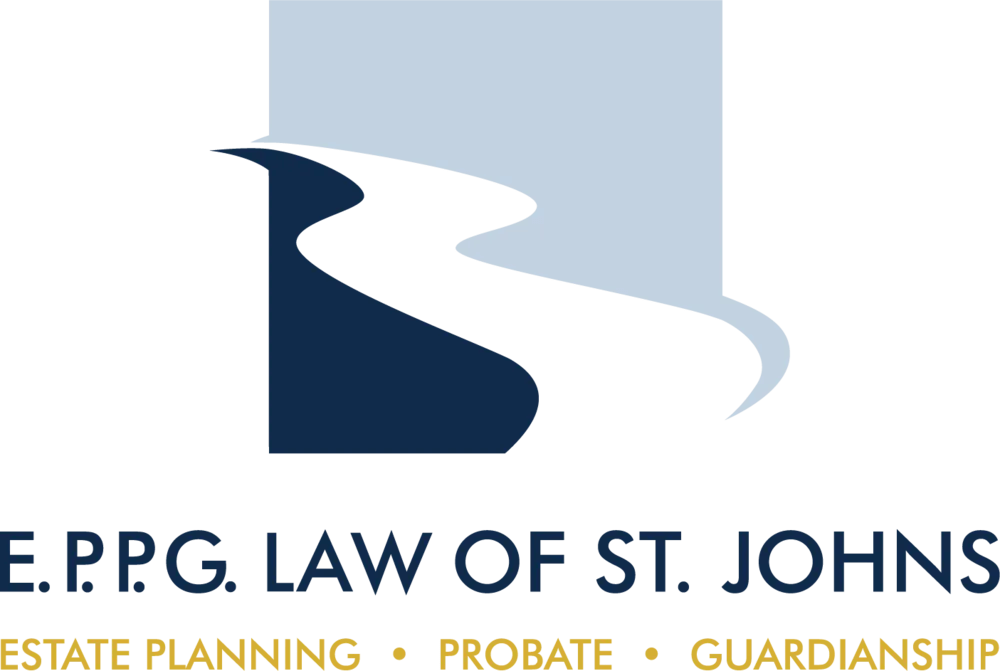Estate planning is more than just drafting legal documents—it’s a way to protect your wishes, support your loved ones, and bring peace of mind for the future. At E.P.P.G. Law of St. Johns, we help individuals and families in St. Augustine navigate the estate planning process with compassion, clarity, and care.
What Is Estate Planning and Why Does It Matter?
Estate planning refers to the legal steps you take to manage your affairs if you become incapacitated or pass away. These steps include naming guardians for minor children, designating beneficiaries, outlining your healthcare wishes, and preparing for the smooth transfer of property.
A comprehensive estate plan typically includes:
- A Last Will and Testament to direct how assets should be distributed and to name an executor and guardians for minor children.
- Trusts to protect assets, provide for loved ones, and possibly avoid probate.
- Power of Attorney to authorize someone you trust to handle financial matters if you’re unable.
- Healthcare Directives and Advanced Directives to express your medical care preferences.
Why Wills and Trusts Are Crucial Planning Tools
As an experienced wills & trusts lawyer in St. Augustine, Heather Maltby works closely with clients to determine which estate planning tools best suit their needs.
The Role of a Last Will and Testament
A will allows you to choose how your assets are distributed and who will care for minor children. Without one, state law decides—which can lead to outcomes that may not align with your values or wishes.
The Power of Trusts
Trusts can offer more flexibility and privacy than a will. Assets placed in a trust do not pass through probate, meaning faster access for beneficiaries and less public scrutiny. For example:
- A Revocable Living Trust lets you manage your assets while alive and pass them directly to beneficiaries.
- A Special Needs Trust can provide for a disabled family member without impacting their eligibility for assistance programs.
- A Testamentary Trust (created through your will) can delay asset distribution until a beneficiary reaches a certain age, such as 25 or 30.
Avoiding Probate in Florida
Probate is the legal process of validating a will and distributing assets. While it’s a normal part of settling an estate, probate can be time-consuming and costly. An effective estate plan, including the use of trusts, can help minimize or avoid probate altogether.
This is especially helpful if you own significant property or if privacy and efficiency are top priorities for your family.
Planning for Incapacity
No one wants to think about becoming incapacitated, but planning ahead makes all the difference. Without documents like a power of attorney or healthcare directive, your loved ones may need to petition the court for guardianship—a lengthy, emotional, and expensive process.
Estate planning puts you in control and relieves your family of having to make difficult decisions without guidance.
Who Needs Estate Planning?
Many people believe estate planning is only for the wealthy. In reality, it’s essential for anyone who:
- Has children or dependents
- Owns a home or property
- Wants to ensure their healthcare wishes are followed
- Hopes to avoid family conflict or probate delays
Whether your estate is large or modest, planning ahead is an act of love. Once you have a plan in place, it’s important to talk with your family about it as well, which shows your care and concern for loved ones.
Work with a Trusted Wills & Trusts Lawyer in St. Augustine
At E.P.P.G. Law of St. Johns, we take pride in offering thoughtful, personalized estate planning services that help you feel confident and cared for. Heather Maltby and her team work closely with each client to understand their goals and provide clear, compassionate guidance every step of the way.
Estate planning isn’t just a legal task—it’s a way to protect what matters most. Request a Consultation with our St. Augustine estate planning team to get started on creating your plan today!
Reference: The Daily News (Jan. 30, 2025) “What to know about estate planning”


